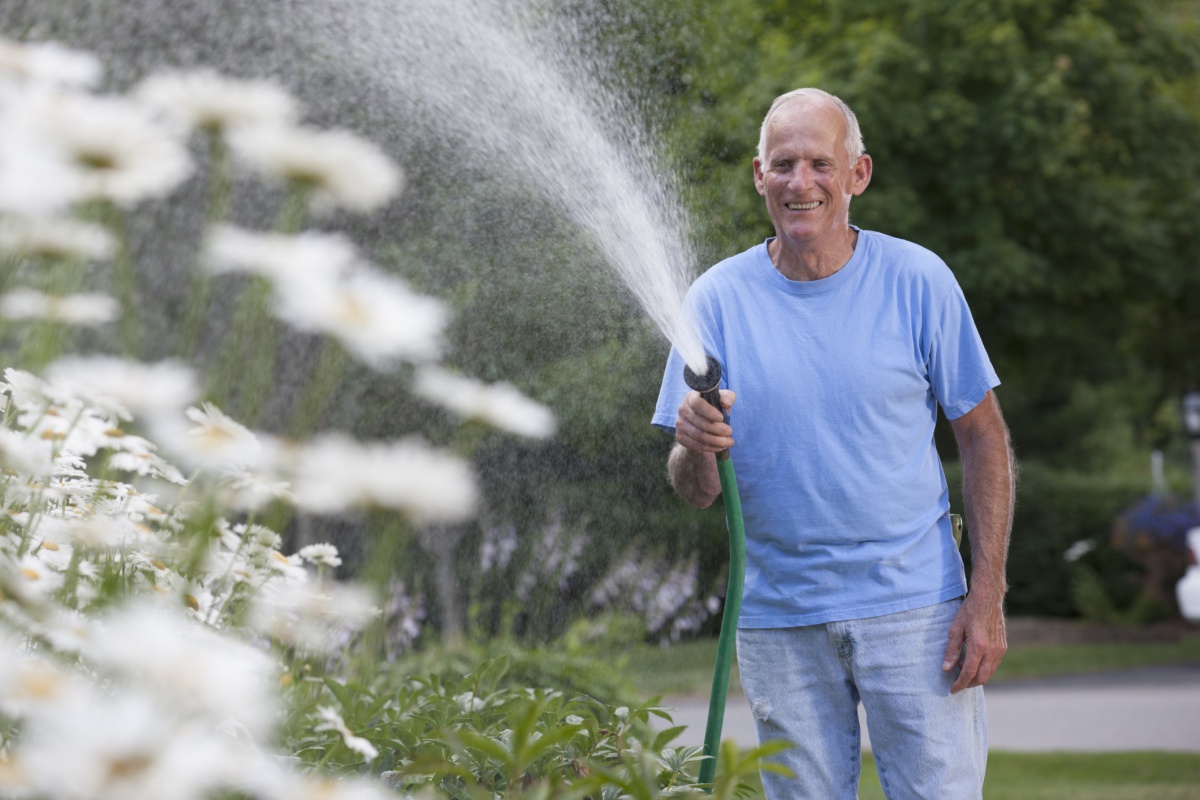View From the Garden: The Gardener Needs Water, Too!

My after-work hours are very boring but consistent. If I don’t work late, I read a little, shower, eat dinner (prepared by my husband) and fall asleep on the couch by 8 p.m. But these last few weeks, I have been more tired than I should have been—to the point where I had to take last Friday off and lay in bed all day. There were spells of dizziness and, of course, I imagined all sorts of dire illnesses. A diagnosis of dehydration was pronounced by my sister, the acupuncturist and knower of all things regarding bodily health.
The diagnoses relieved my dread and made sense. I have the symptoms of dehydration common to those who work outside, do not consume enough fluids, eat lunch on the fly and are too tired after work to eat much at all: fatigue, extreme at times and dizzy spells. One can also be “fuzzy brained” and get confused.
The possibility of dehydration did not occur to me. I had begun, with the warmer weather, drinking more water but that is not the solution and excess water can even make things worse. One needs water, but more important are electrolytes. I had heard of them but did not realize what they do until I did some research.
Electrolytes are essential for life! They are seven chemical compounds that enable our bodies to send nerve impulses from one cell to another controlling all muscle coordination—and thus heart function and fluids. They can be kept in balance by drinking enough fluids (not a lot of coffee or alcohol) and eating a good diet high in fruits and vegetables. Vitamins help but electrolytes most need potassium, magnesium, calcium and phosphate. If you are experiencing unexplained fatigue dizziness, achy joints, bones and/or muscles and/or mental confusion maybe you are dehydrated. Drink water throughout the day and eat well. Don’t let it go too far like I did. I plan to add some electrolytes to my water!
Too much water can also be a problem for plants. Several gardens where I work have had the irrigation adjusted more than once this season because they were getting too much water. You will know when the soil seems constantly wet or very moist on the top and it is always very weedy. If you have this condition, examine the weeds carefully and become familiar with them. They like this condition and are usually present in this circumstance…“water weeds.”
One small bed that I tend once a month became so wet that many of the plants drowned. The irrigation had been turned up for the lawn and the bed is in that same zone. The irrigation will need to be changed and the plants replaced. The water weeds, however, were vigorous.
Pots must be watched. Water them well—but note that overwatering can kill the plants. Put your finger into the soil and water generously when the soil is dry to the first knuckle. I was at a property this week where a pot of rosemary was floating. The hole on the bottom of the pot had become clogged and the automatic watering tube in the pot had continued to supply water.
Just like the plants in your garden, each potted one has different water needs. Read the labels when you buy plants and, put the ones with the same needs together. Pot lifters will help keep the holes open.
All living things need water. Supplying the right amount is vital for gardeners and gardens. I will remember this and take steps to avoid dehydration.
Jeanelle Myers is a professional gardener, landscaper and consultant. For gardening discussion you can call her at 631-434-5067. jeanellemyersfinegardening.com



